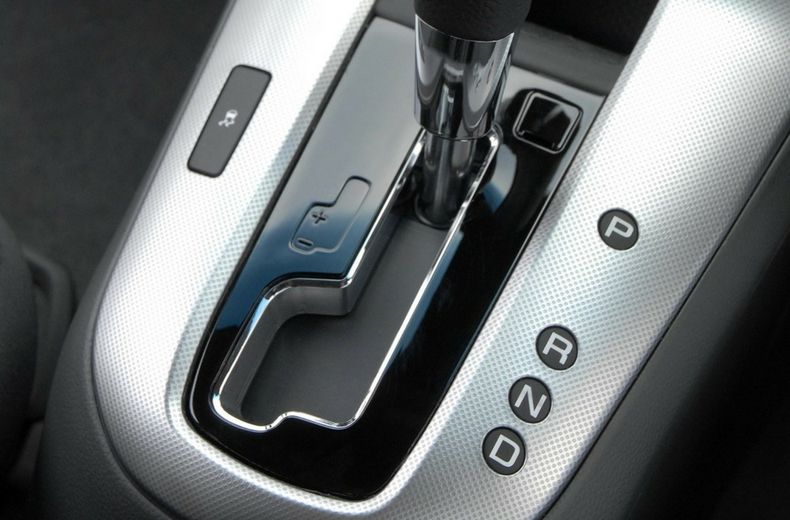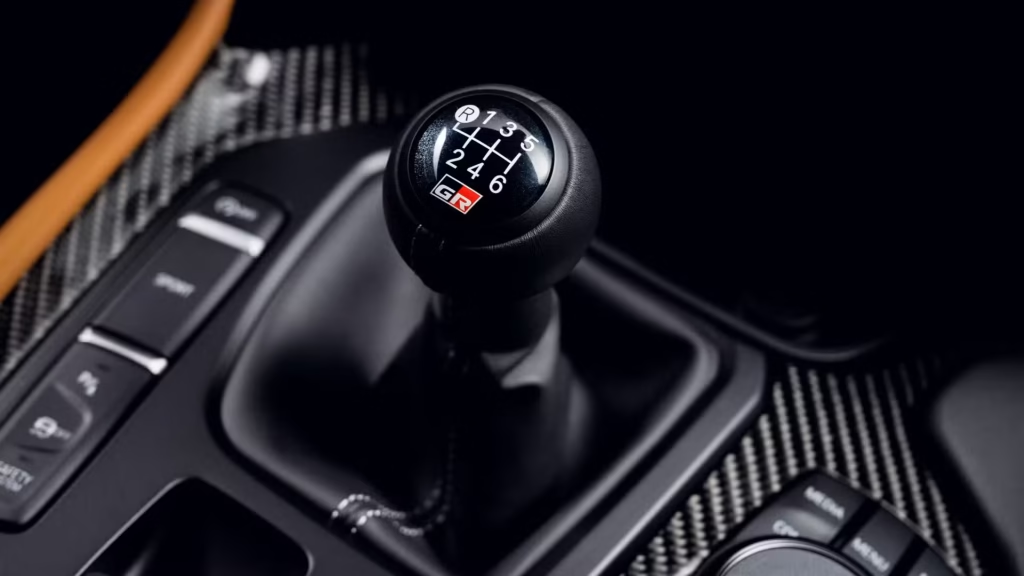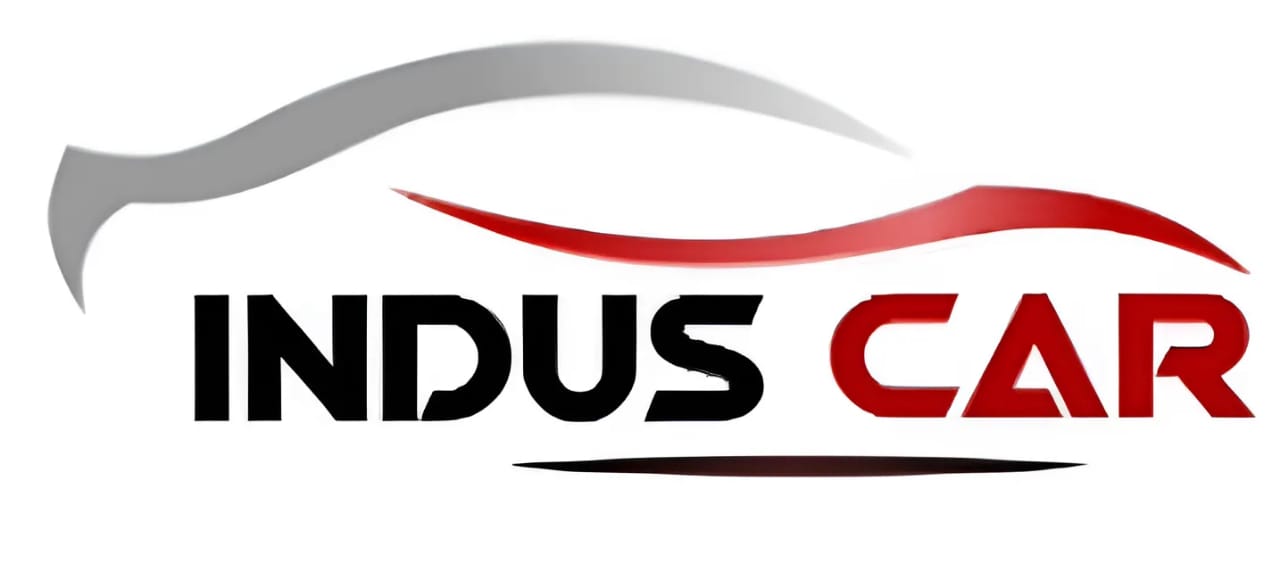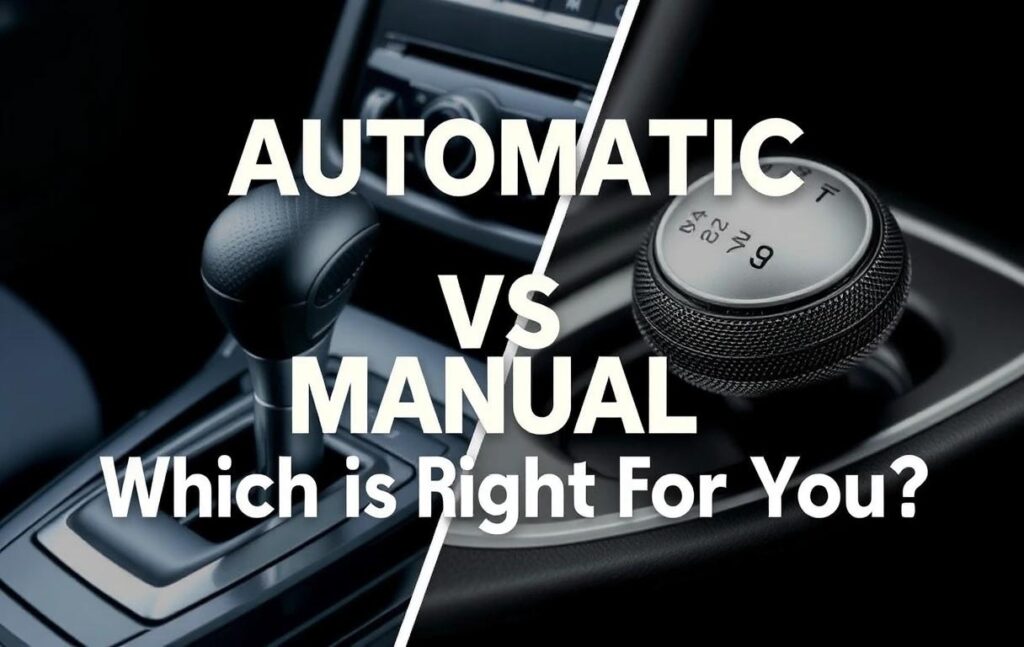Introduction:
When it comes to choosing a car, one of the most critical decisions is selecting the type of transmission: automatic or manual. Both transmission types have their unique advantages and limitations, catering to different driving preferences and requirements. Understanding their differences can help you make an informed decision that aligns with your driving style, budget, and needs. In this blog, we’ll explore a detailed comparison of automatic and manual transmission cars, helping you determine which option is the right fit for you.
Table of Contents
Table: Key Differences Between Automatic and Manual Transmission Cars
| Feature | Automatic Transmission | Manual Transmission |
|---|---|---|
| Operation | Gear shifting is automated | Driver manually shifts gears |
| Ease of Driving | Easier, especially in traffic | Requires more skill and attention |
| Fuel Efficiency | Slightly lower | Typically higher |
| Maintenance Cost | Higher due to complex systems | Lower due to simpler mechanisms |
| Initial Cost | More expensive | Generally cheaper |
| Driving Experience | Comfortable and less engaging | Engaging and offers better control |
| Learning Curve | Easier for beginners | Steeper learning curve |
| Resale Value | Higher in some markets | Moderate, depending on demand |
Understanding Automatic Transmission Cars

Automatic transmission cars are designed to make driving simpler by automating the gear-shifting process. They are particularly popular among urban drivers and those seeking convenience. Here’s a closer look at their features:
1. Ease of Use
Automatic cars are ideal for beginners or drivers who frequently navigate heavy traffic. Without the need to manually change gears, driving becomes more straightforward and stress-free.
2. Comfort
With no clutch to operate and automatic gear shifts, these cars offer a smoother and more comfortable ride, especially during long commutes.
3. Higher Cost
Automatic cars tend to be more expensive upfront due to their advanced technology. Additionally, their maintenance and repair costs can be higher compared to manual cars.
4. Fuel Efficiency
While newer automatic transmissions are closing the gap, they are still generally less fuel-efficient than manual cars, particularly in older models.
5. Best For
- Urban driving with frequent stops and starts.
- Drivers who prioritize convenience over control.
Understanding Manual Transmission Cars

Manual transmission cars, also known as stick-shift cars, require the driver to manually change gears using a clutch pedal and gear stick. They appeal to enthusiasts who enjoy an engaging driving experience. Let’s explore their features:
1. Enhanced Control
Manual cars provide better control over gear shifts, making them ideal for those who drive on diverse terrains or enjoy the thrill of driving.
2. Cost Efficiency
These cars are typically more affordable to purchase and maintain due to their simpler mechanical structure. They are a practical choice for budget-conscious buyers.
3. Fuel Efficiency
Manual cars are often more fuel-efficient, especially in older models. Drivers can optimize fuel usage by shifting gears at appropriate times.
4. Steeper Learning Curve
Learning to drive a manual car requires more practice and coordination, making it less suitable for beginners.
5. Best For
- Driving enthusiasts who value control and engagement.
- Rural or off-road driving where precise gear control is beneficial.
Comparison of Driving Experience
1. Automatic Transmission
Driving an automatic car is effortless and requires minimal driver input. It’s perfect for long commutes, heavy traffic, and city driving. However, the lack of control over gear shifts can make it less appealing to driving purists.
2. Manual Transmission
Manual cars provide a more engaging and immersive driving experience. They allow drivers to tailor gear shifts to specific driving conditions, offering better performance on challenging roads.
Cost Considerations
- Initial Cost: Automatic cars are generally pricier than their manual counterparts.
- Maintenance: Automatic transmissions are more complex and expensive to repair. Manual cars, being simpler, cost less to maintain.
- Resale Value: Automatic cars tend to have a higher resale value, particularly in markets where they are in demand.
Environmental Impact
Manual cars often have a slight edge in fuel efficiency, which translates to lower carbon emissions. However, advancements in automatic technology, such as CVTs (Continuously Variable Transmissions), are narrowing this gap.
Which One Should You Choose?
The choice between automatic and manual transmission largely depends on your personal preferences and driving conditions:
Choose Automatic Transmission If:
- You frequently drive in urban traffic.
- Comfort and convenience are your top priorities.
- You’re a beginner or prefer a less demanding driving experience.
Choose Manual Transmission If:
- You enjoy an engaging and hands-on driving experience.
- You drive in rural areas or challenging terrains.
- Budget and fuel efficiency are your primary concerns.
Conclusion
The debate between automatic and manual transmission cars is ongoing, with each offering distinct benefits. Automatic cars excel in convenience and comfort, making them ideal for city driving. On the other hand, manual cars offer control, affordability, and fuel efficiency, appealing to driving enthusiasts and budget-conscious buyers. Ultimately, the decision boils down to your driving habits, preferences, and budget. Take a test drive of both types to determine which one feels right for you.
FAQs
1. Are automatic cars better than manual cars?
It depends on your needs. Automatic cars are more convenient, while manual cars offer better control and fuel efficiency.
2. Is it harder to learn driving a manual car?
Yes, manual cars require more coordination and practice to master compared to automatic cars.
3. Do manual cars have better fuel efficiency than automatics?
Traditionally, manual cars are more fuel-efficient. However, modern automatic cars are closing the gap with advancements in technology.
4. Are manual cars cheaper to maintain?
Yes, manual transmissions are simpler and have lower maintenance costs compared to automatics.
5. Which type of car has a higher resale value?
Automatic cars generally have a higher resale value in markets where they are more popular.



